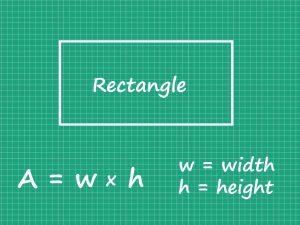Introduction:
In this session, you will learn to make halves and fourths of rectangles and circles. In the previous session, we learned about making equal shares.
Question:
Draw 4 equal shares in the shape and color 2 shares, then write numbers to tell how many shares you colored.

Solution:
This circle shared 4 equal parts and two parts are coloured.

Is there any other method to name the shared parts?
So, in this session, we will learn to make halves and fourths of rectangles and circles.
We can divide whole into shares.

This circle is divided into two shares or parts.
Each share is called a half. Two halves make one whole.

This circle is divided into four parts.
Each part is called one-fourth or a quarter. Four quarters make one whole.
Make Halves and Fourths of Rectangles and Circles
Example 1:
Circle the correct shapes for given problems.

- One half yellow.

Solution:
Circle one-half yellow in the given shapes.
The first shape shared two parts or halves. One half is colored yellow.
The third shape shared four parts or quarters. Two quarters are colored in yellow.

Two quarters is equal to one half.

Example: 2
Color the shapes for the given problems:-
- One quarter is red.

- One-fourth is green.

Solution:
Color one-quarter red.

This shape is divided into four parts. Each part is called a quarter. One-quarter part is colored red.
Color one-fourth in green.

This shape is divided into four parts. Each part is
called one-fourth or a quarter. One-fourth part is colored green.
Example 3:
- What share of the rectangle is blue.

2. What share of the circle is orange.

Solution:

This rectangle is divided equally into four parts. Each part is called a quarter. One quarter is colored blue.

This circle is divided equally into two parts.
Each part is called one-half. One half or share is colored orange.
Exercise:
Q1. What share of the rectangle is yellow?

Q2. What share of the circle is red?

Q3. Color the shape for each problem. One-half green.

Q4. One-quarter yellow.

Q5. Circle the correct shapes for each problem. One half green

Q6. One-fourth orange.

Q7. Alex has one-half of a chocolate bar. Jenny has one-quarter of a different chocolate bar. Jenny’s piece is bigger. How could Jenny’s piece be bigger?
Q8. Sam says the rectangle is divided into halves. Is he correct? Circle yes or no.

Q9. Mary says the circle is divided into quarters. Lucky says it is divided into fourths. Who is correct? Explain.

Q10. Danny draws a rectangle divided into fourths. She colors one-half of the rectangle blue and one-quarter of the rectangle green. Draw a rectangle to match the one Danny drew.
Concept Map:

What We Have Learned
- Divide shapes into 2 and 4 equal shares and use words to describe those shares.

Related topics
Addition and Multiplication Using Counters & Bar-Diagrams
Introduction: We can find the solution to the word problem by solving it. Here, in this topic, we can use 3 methods to find the solution. 1. Add using counters 2. Use factors to get the product 3. Write equations to find the unknown. Addition Equation: 8+8+8 =? Multiplication equation: 3×8=? Example 1: Andrew has […]
Read More >>Dilation: Definitions, Characteristics, and Similarities
Understanding Dilation A dilation is a transformation that produces an image that is of the same shape and different sizes. Dilation that creates a larger image is called enlargement. Describing Dilation Dilation of Scale Factor 2 The following figure undergoes a dilation with a scale factor of 2 giving an image A’ (2, 4), B’ […]
Read More >>How to Write and Interpret Numerical Expressions?
Write numerical expressions What is the Meaning of Numerical Expression? A numerical expression is a combination of numbers and integers using basic operations such as addition, subtraction, multiplication, or division. The word PEMDAS stands for: P → Parentheses E → Exponents M → Multiplication D → Division A → Addition S → Subtraction Some examples […]
Read More >>System of Linear Inequalities and Equations
Introduction: Systems of Linear Inequalities: A system of linear inequalities is a set of two or more linear inequalities in the same variables. The following example illustrates this, y < x + 2…………..Inequality 1 y ≥ 2x − 1…………Inequality 2 Solution of a System of Linear Inequalities: A solution of a system of linear inequalities […]
Read More >>Other topics







Comments: